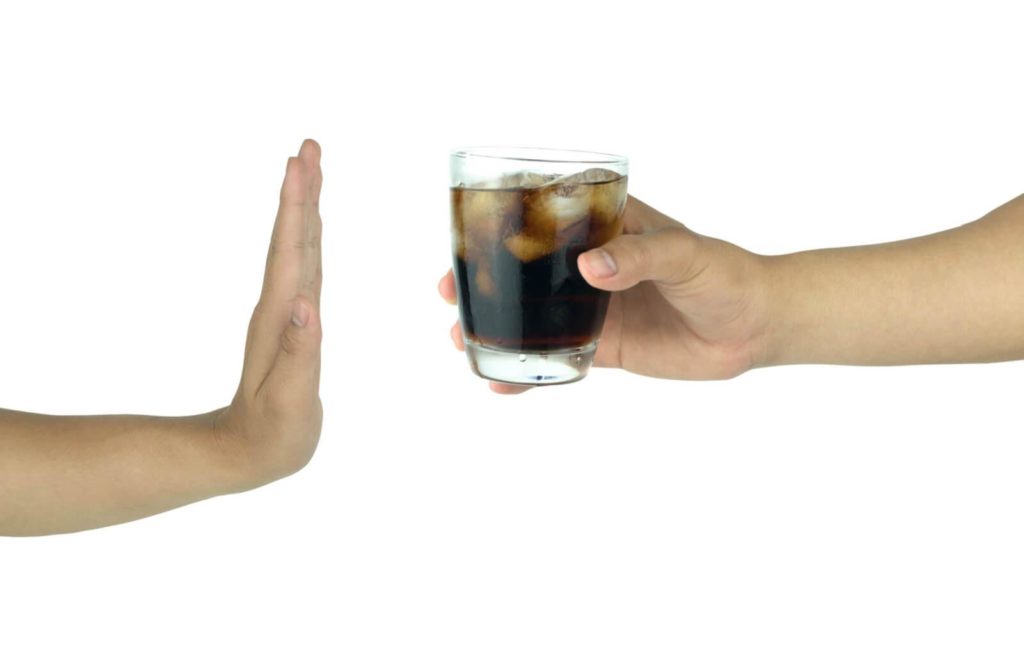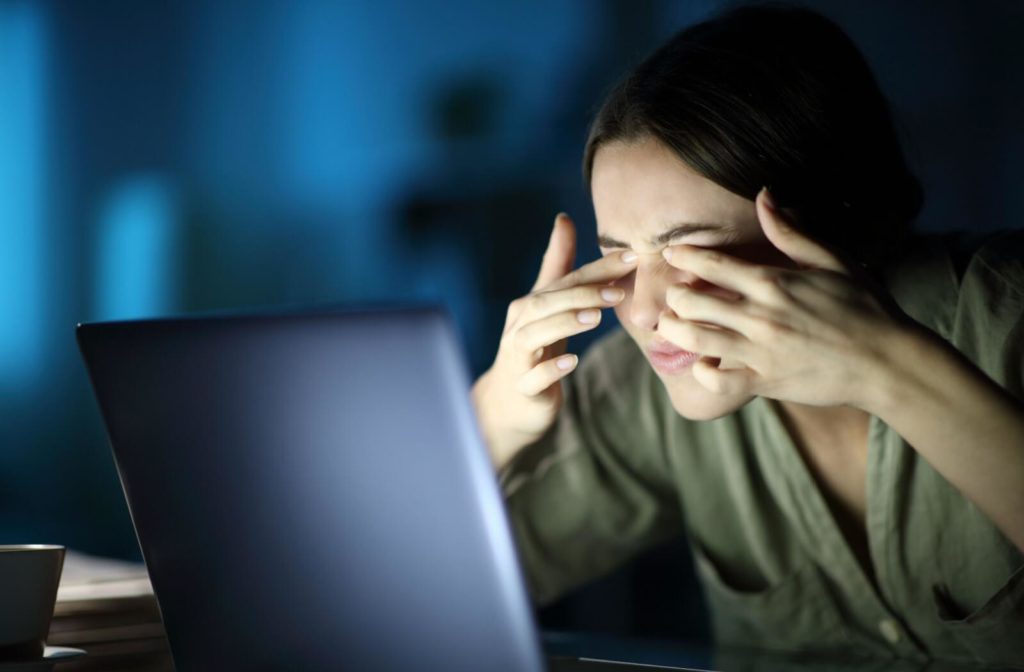It happens to everyone at some point: a twitching eye. At first, it can feel kind of funny, but eventually, it can get annoying. Eye twitching can appear and disappear out of nowhere, but is there a reason for it?
Myokymia, also known as an eyelid twitch, is a condition in which the eyelid muscles spasm uncontrollably. This sensation is usually felt in one of the upper or lower eyelids.
A twitch of the eyelids can occur for several reasons, including digital eye strain, and can last anywhere from a few seconds to several days, depending on the underlying cause.
Schedule an eye exam if you’re experiencing eye twitching often.
What Causes Eye Twitching?
Understanding the underlying cause of eye twitching is critical because the best treatment is to eliminate the trigger. Possible causes include:
- Digital eye strain
- Stress
- Fatigue
- Dry eye disease
- Too much caffeine
- Blepharospasm
Digital Eye Strain
Digital eye strain is common in today’s world, where we use screens regularly for work and personal use. The use of computers, tablets, and smartphones can fatigue our eyes and lead to eyelid twitching.
Stress
Stress is a common culprit of eye twitches. Any type of physical or mental stress can cause the body to release cortisol, a steroid hormone that acts as a stimulant and puts your body into “flight or fight” mode. It can affect the nervous system and cause nerves to stimulate muscle twitches.
Fatigue
A good night’s sleep is not only beneficial to your overall health, but it can also help to balance your hormones and relieve stress. While you sleep, your eyes can rest from the visual stimulation they receive throughout the day.
Doctors recommend a minimum of 7 hours of sleep per night. If you’re feeling especially tired lately, your eye twitch could be a sign that you need a few more hours of sleep.
Dry Eye Disease
Dry eyes are a common problem, and they can be especially bothersome if they cause an eye twitch.
If your eyelids twitch and your eyes feel gritty or dry, consult your eye doctor for a dry eye evaluation. Restoring moisture to the surface of your eye may help reduce current and future twitching.
Your eye doctor can recommend eye drops and other dry eye therapies suited for your eyes to help you achieve moisture.
Too Much Caffeine
Caffeine consumption throughout the day may help you stay awake and alert, but too much caffeine can have overstimulating effects on your eye muscles, causing an irritating eye twitch.
Blepharospasm
Blepharospasm is a rare condition that affects only 5 people out of every 100,000—it’s a neurological condition that causes uncontrollable facial and eye spasms, or twitches.
Blepharospasm symptoms typically worsen over time and are generally obvious, long-lasting, and severe. These spasms can also cause increased blink rates and intensity and uncontrolled eyelid closing.
If you have this condition, your eye doctor may recommend Botox injections, oral medication, or surgery to alleviate your eye twitch.

How to Treat Twitching Eyes
Making lifestyle changes can help alleviate persistent eye twitching.
Reduce Your Stress
Relax by engaging in stress-relieving activities such as yoga and deep breathing exercises, or simply take time out of your day to do something you enjoy.
Schedule Regular Eye Exams
Schedule an eye exam to determine what is causing your eyelids to twitch. To treat the underlying problem, your eye doctor may prescribe glasses or contacts to relieve eye strain, dry eye treatments, or oral medication.
Reduce Screen Time
You can use the 20-20-20 rule to avoid straining your eyes while using a digital device: every 20 minutes, look away from your screen and focus on an object at least 20 feet away for 20 seconds.
You can also talk to your optometrist about computer glasses, which can help you see your screen clearer.
When to See Your Eye Doctor
Eyelid twitching is often harmless, but in some cases, it can indicate a more serious problem. If the twitching persists for more than a few weeks or you have other symptoms, such as a drooping upper eyelid, red or swollen eyes, or unusual eye discharge, you should consult an eye doctor.
Contact your primary care physician immediately if you have other muscle spasms or involuntary movements in your face.
If you’re concerned about eye twitching or have more questions about relieving the symptoms, book an appointment with the View Pointe Vision + Style team in Winnipeg.


